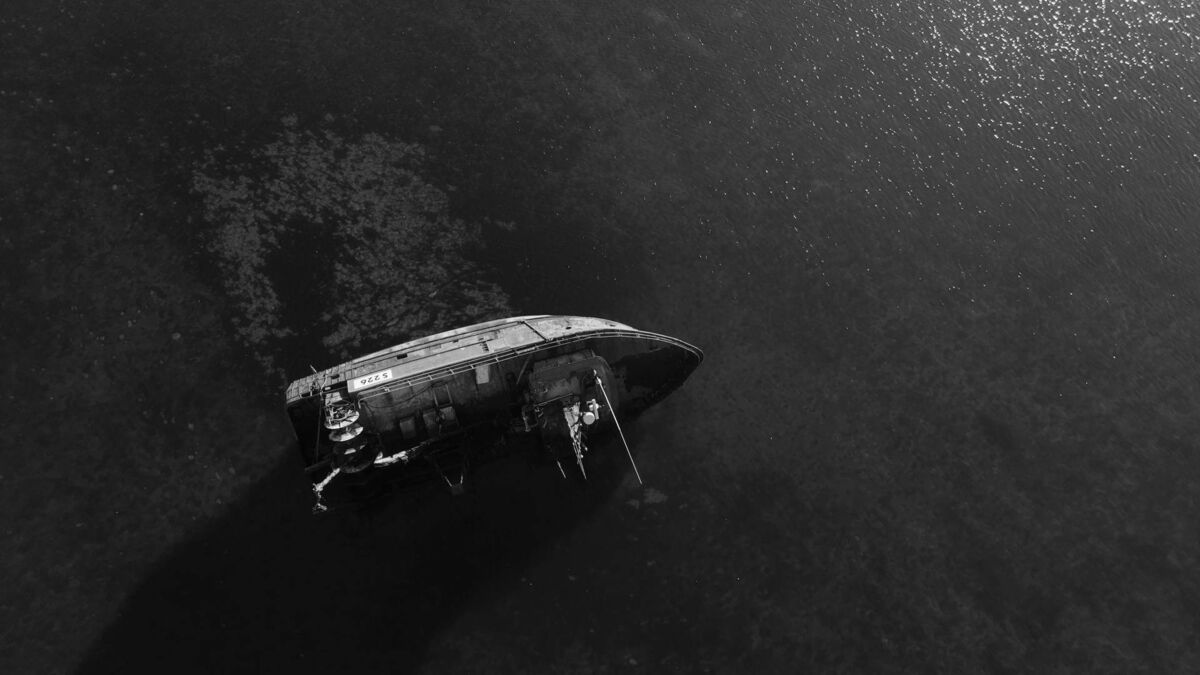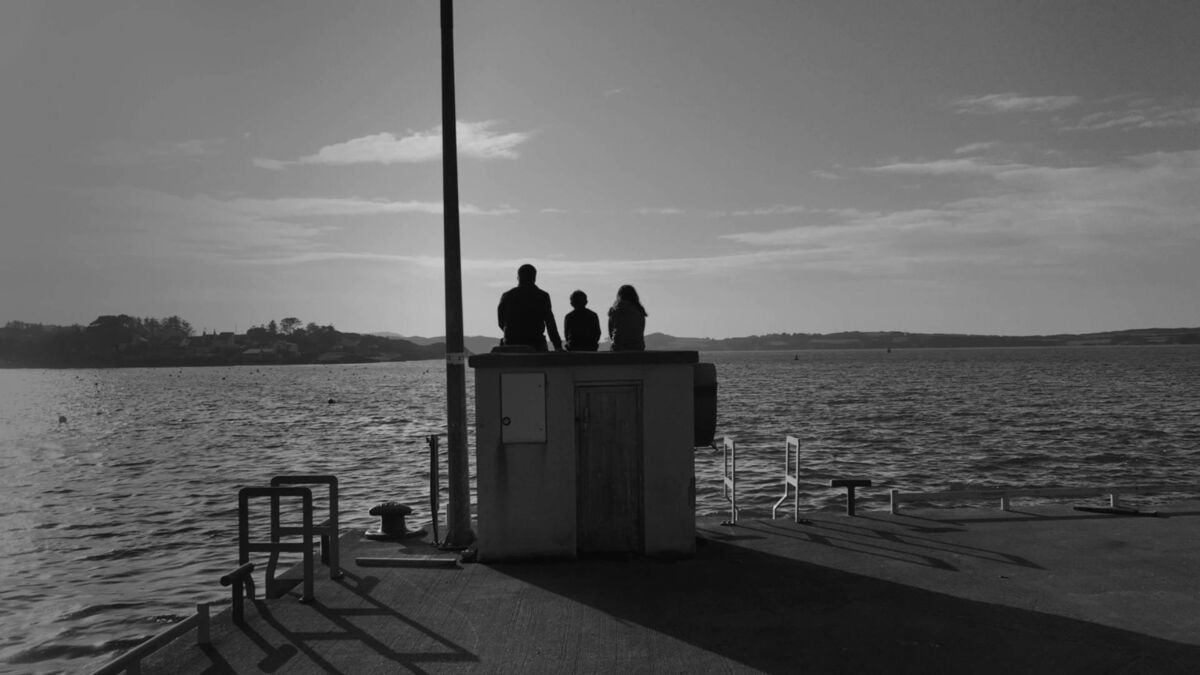His job as one of West Cork’s best-known wedding videographers has helped Colin Hickey hone his craft as a filmmaker.
Filming a couple’s treasured day as it unfolds in real time, says Hickey, sharpened his skills when it came to other film projects. Now his latest feature makes its big-screen debut.
Shot in black and white and without the use of dialogue, Perennial Light centres on a boy who is haunted by a friend’s death as he himself navigates the journey from childhood to adulthood. He embarks on a quest for healing and redemption.
“A lot of the scenes in Perennial Light were shot in real time,” says Hickey. “Where you see the lads on the pier, or where you see the fishermen coming in at night, and sometimes with the actors, I would allow it to unfold as it happens,” he says, adding that there was no second take in a lot of those scenes.
“Where did I learn this? A wedding unfolds in real time. You know the structure of the day, you know the bride’s going to be here, and then we’re going to go there, but it unfolds in real time. A photographer can ask them to pause. A video man, you don’t get a second take.
“Over time, I learned to be able to work in that process of allowing an event to happen, whether it’s a person, a bride, walking down a hill, or whether it’s a boat coming in at night, and being able to instinctively figure out how to get the best angles, how to get the best out of what’s in front of you, whether it be an actor or a bride and groom at a wedding.”
Perennial Light is special and unique, and Hickey’s unconventional approach to his third feature is getting strong word of mouth from audiences and critics. For Hickey, getting it released into cinemas is the win.
“Six weeks ago, the film was sitting at home on my computer,” says Hickey, adding that the Arts Council-backed film generated buzz on the festival circuit, encouraging him to endeavour to release it in cinemas. “When we screened at the Dublin International Film Festival last year, I wanted to get it to festivals but I didn’t really think about a release date. I thought that was too ambitious. From the response at DIFF, from some of the online reviews we got, I think that’s helped the film to find a small theatrical release. I really couldn’t be happier.”
Originally from Ballincollig and based in Baltimore for the past 15 years, Hickey studied film at St John’s in Cork and later in London, as he wondered whether he could focus on it as a career. “Not that I was put off by the business, but the people I met over the next number of years, not all of them – but a lot of them – were kind of disappointed by the outcome of their films. By the time it got to the filming, and by the time it got to the final edit, it wasn’t what they imagined in their head.”
Along with his own creative ambitions, it led him to think about the traditional structures of filmmaking and how he could adapt. “If I do it, how do I do it without being disappointed, the feeling that things didn’t work out?” he says.
Hickey was living in South America when he made a short film in Spanish. He started toying with the idea of a different approach. I thought: ‘Well, maybe I’ll film the scenes with dialogue, and I’ll film them without dialogue’.
“So now you have to stylise the scene more. You might have to change the location. You have to change the lighting. I work with natural light only, so there’s no artificial lighting. And so when we got to the editing process, I realised that I started to cut out a lot of the dialogue, and I relied on imagery.”

On returning to Ireland with his family, Hickey set up his wedding-video business and moved to West Cork “for peace and quiet”. While driving the many corners of the county for his wedding work, he would stop at a striking location and train his camera on the place.
“I had this instinct, I wanted to make films. So I started filming in these locations, random places, any landscape shots from the side of a road, or if I saw a location, a house or a building, I would get out and film it. And then bit by bit, I started piecing together shots.”
Over a number of years, that led to his first feature film, Evening Redness in the South, which was set around building sites that were left idle in Cork. A couple of years later, he took a similar filmmaking approach for his second feature, Where the Merrows Roam. “I spent two years working on that, filming with my kids and locally, with people that I knew.
“The key thing to my approach is that I use what’s available to me. If a boat yard is available, I’ll film on a boat yard. If a pier is available, I’ll film on a pier. A lot of the actors are neighbours of mine, my nephew’s in Perennial Light.
“I just go out and part of the joy of it, what’s satisfying, is finding the movie as you go along. It avoids disappointment in a way, and I think that was one of the main reasons why I started doing it this way – lots of other reasons as well, but that’s one of them.”

His work also comes from a personal place, and Hickey recalls a teenage memory that he kept thinking upon while making Perennial Light and the themes it explores.
“I had a very brief moment when I was a teenager, where I met someone who was sick and was terminally ill. We weren’t close, but I would have known of the person. I was walking by the house, and I was invited in by one of their parents.
“It was the first time that I ever came across anyone who was sick and was dying young. When you’re young, you assume everyone grows old. You see parents. You see grandparents. I think it must have made an impression. Over the years, whenever someone would pass away, or I’d hear about a young person die, I would remember that one incident. And so it sort of found its way into the film. It’s funny how these things work.”
- Perennial Light is in cinemas from Friday, November 29
This post was originally published on here







